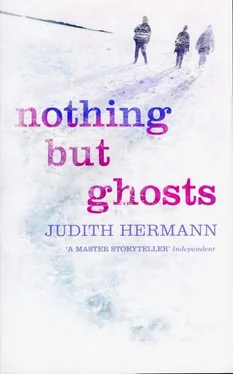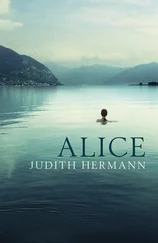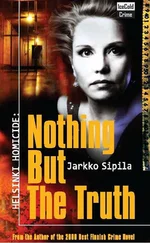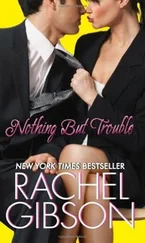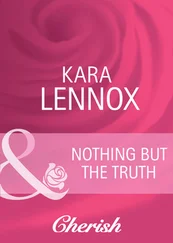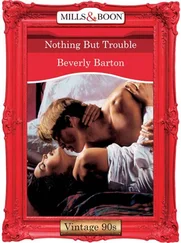Nothing but Ghosts
Judith Hermann
for Franz
Wouldn’t it be nice
If we could live here
Make this the kind of place
Where we belong
The Beach Boys
Cover Page
Title Page Nothing but Ghosts Judith Hermann
Epigraph Wouldn’t it be nice If we could live here Make this the kind of place Where we belong The Beach Boys
Ruth (Girlfriends)
Cold-Blue
Acqua Alta
Nothing But Ghosts
Pimp
Where Are You Going?
Love for Ari Oskarsson
About the Author
Also by Judith Hermann
Copyright
About the Publisher
Ruth said, ‘Promise me that you’ll never start anything with him.’ I still remember the way she looked when she said it, sitting on the chair by the window, bare legs drawn up to her chest. She had showered and washed her hair, and she was in her underwear, a towel wrapped around her head, her face very open, wide, looking at me intently, more amused than worried. She said, ‘Promise me that, OK?’ and I looked past her out of the window at the multi-storey car park across the street. It was raining and already getting dark. The car park sign shone blue and beautiful. I said, ‘Listen, why should I promise? Of course I won’t start anything with him.’ Ruth said, ‘I know. Promise me anyway,’ and I said, ‘I promise,’ and then I looked at her again; she shouldn’t have said that.
I’ve known Ruth all my life.
She had known Raoul for two or three weeks. He had come to do a guest appearance at the theatre where she had a two-year engagement; he wasn’t staying long; perhaps that’s why she was in such a hurry. She phoned me in Berlin – we had shared an apartment until she had to move because of her stint at the theatre. We weren’t good at dealing with being apart. In fact, she called me every evening. I missed her.
I was sitting in the kitchen, which was empty now except for a small table and a chair, staring at the wall while we talked on the phone. There was a little piece of paper she had tacked up on the wall once: ‘Tonight, tonight it’s gonna be the night, the night.’ I kept thinking about taking it down, but then I never did. She had phoned as usual and blurted it right out. ‘I’m in love,’ she said. And then she talked about Raoul, and her voice sounded so happy, she made me feel restless, in a way even nervous, and I had to get up and, still holding the phone, walk through the apartment.
I’d never been interested in her men, nor she in mine. She said, ‘He’s so tall.’ She said all the things you always say, and a few new things too. Being in love this time didn’t seem to be different from her other, earlier infatuations. For a week she and Raoul had been tiptoeing around, stealing glances and trying to be near each other. After a party one night, drunk, they had kissed for the first time in the pedestrian mall of the small town. They kissed behind the scenery during the break between scenes and in the canteen after their colleagues had left and the canteen cook had put up the chairs. Raoul had such soft hands, she said. His head was shaved; sometimes he wore glasses – small, bent metal frames that didn’t suit his face. He looked strange with them on. She said, ‘He’s really more your type, really, exactly your type. You’d faint if you saw him.’
I said, ‘What’s that supposed to mean, my type?’
And Ruth hesitated, giggled, then said, ‘I don’t know, maybe physically? A little common maybe?’
He said nice things to her – ‘The colour of your eyes is the colour of grass when the wind sweeps through it, reversing the blades to white.’ She quoted him reverently; he was also vain, she said (and laughed), like a child in a way. He was playing the part of Caliban in The Tempest. Evening after evening, the audience went wild. He was from Munich. His father died a long time ago. Raoul had studied philosophy. Actually, this summer he was going to Ireland, would sleep in his car, would try to write while sitting on the cliffs with a view of the sea. Raoul. Ruth pronounced it Ra-uhl.
When I visited Ruth – not because of this new love of hers; I would have gone to see her in any case – she picked me up at the railway station and I saw her before she saw me. She was walking along the platform, looking for me. She wore a long, blue dress, her hair pinned up. Her face glowed, and the physical tension, her walk, the way she held her head and her searching gaze expressed an expectation that could in no way ever be meant for me. Nor did she find me, and eventually I simply walked over and stood in front of her.
She was startled but then she hugged me, kissed me, and said, ‘Oh, my dear, my dear.’ The new perfume she was wearing smelled of sandalwood and lemons. I took her hands and held them in mine, I looked into her face; her laughter was very familiar.
Ruth had rented a tiny apartment downtown, an American-style apartment, one room, a kitchenette, a bath. There were no curtains at the big windows; the bathroom was the only place you could hide from the drivers who parked their cars in the multi-storey across the way and then stared over at you for minutes at a time, seemingly absent-mindedly. The room was small, one bed, a rack on which to hang up clothes, a table, two chairs, a stereo system. On the windowsill stood a photo I had given her as a goodbye present, the view from our apartment in Berlin. On the table, a silver ashtray from Morocco, and tucked into the frame of the mirror over the bathroom sink a passport picture of me.
There must have been a moment when I was alone in the apartment – Ruth at the theatre or shopping with Raoul – and I remember that I sat on the chair by the window, on Ruth’s chair, smoking a cigarette and exposing myself to the eyes of the people in the multi-storey; the neon sign flickered, the room was unfamiliar, the stairwell on the other side of the apartment door dark and quiet.
Ruth doesn’t look anything like me. Everything about her is the opposite of me. All the places she’s round and soft and big, I’m skinny and bony and small. My hair is short and dark; hers is very long and light, curly and bouncy. Her face is beautiful, quite simple, and everything is in proportion – her eyes, her nose, her mouth, all in symmetry. The first time I saw her she was wearing a pair of huge sunglasses and even before she took them off I knew what the colour of her eyes would be – green.
I intended to stay three days, go on to Paris, and then return to Berlin. Back then I would often travel to foreign cities, stay for an aimless, dogged week and leave again. While we were still at the railway station, Ruth said, ‘Stay a little longer, won’t you?’
It was a small town and easy to get your bearings in. The pedestrian zone was right behind the station; the theatre was on the market square; and the church steeple was always visible above the roofs. Taking my suitcase Ruth regarded me closely; she said she was worried that I might become cynical – disparaging and arrogant about the pedestrian zone, the Tchibo coffee bar, the department store, the hotel in the market square – this place where she’d be living for the next two years. I had to laugh; I was far from becoming cynical; I envied her these two years in a small town, without really being able to explain why.
We sat down in an Italian cafe, ordered strawberry ice cream with whipped cream, coffee and water; I lit a cigarette and turned my face up to the late summer sun. I thought, ‘I could feel more carefree in a small town.’ The waiter brought two small coffeepots, dishes of ice cream, glasses, and looked at Ruth, enthralled; she didn’t notice. Me, he ignored. Ruth was restless; didn’t finish her ice cream, ordered another coffee, kept glancing up and down the pedestrian zone, a rushed, hurried, searching glance at the people there, back to my face, and away again.
Читать дальше
